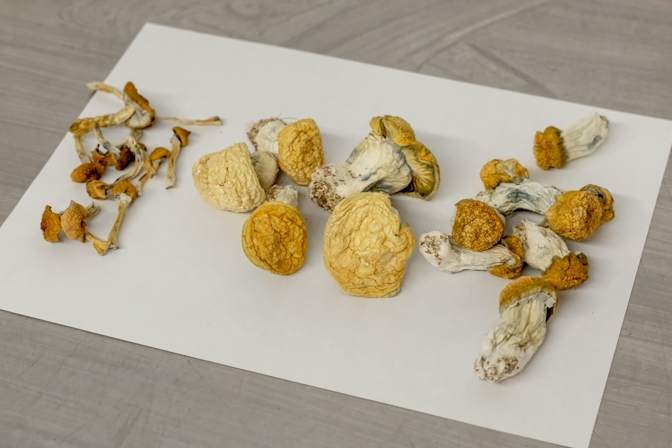
Photo by CHRIS ABATZIS
Beyond The Stigma: The Healing Potential Of Psychedelics
Exploring the benefits of psychedelic substances.
Hallucinogenic drugs have been the subject of intense debate and controversy, highlighted primarily by their connection to recreational use and a general lack of knowledge about appropriate dosages.
This scenario has contributed to the creation of a persistent stigma surrounding these substances, thus overshadowing their therapeutic and medical potential.
However, recent studies have shed light on a less explored aspect of hallucinogenic drugs: their ability to alter the brain and create a “different state of consciousness.” Surprisingly, experts in various fields believe this cognitive alteration could significantly benefit mental and emotional health.
In this context, it is essential to transcend the negative perception associated with hallucinogenic drugs and recognize the possibility that, beyond the ingrained stigma, these substances may offer valuable medical and therapeutic contributions.
As research progresses, a broader picture is revealed, challenging preconceived notions and highlighting the need for deeper exploration of the potential benefits these substances can bring to human well-being.
LSD

LSD, known for its hallucinogenic effects, has been the subject of studies suggesting its usefulness in the treatment of depression.
Recent research has shown that LSD when used in combination with psychotherapy, can increase brain activity in areas associated with positive memories while reducing activity in areas related to negative memories.
These findings suggest therapeutic potential for those struggling with depression, providing an innovative perspective for addressing this condition.
Psilocybin

Psilocybin, present in hallucinogenic mushrooms, has shown potential in the treatment of anxiety and addictions.
Studies suggest that this substance may not only alleviate anxiety in terminally ill patients but may also contribute to the repair of brain cells, offering hope for disorders such as post-traumatic stress disorder and depression.
Psilocybin emerges as a multifaceted tool that could revolutionize the way we address mental health challenges in our day-to-day lives.
Ayahuasca

Mark Fox/Getty Images
Used by Amazonian tribes, Ayahuasca, a mixture of plants, has been the subject of studies suggesting its usefulness in the treatment of addictions and dependence.
Positive and lasting results have been observed in participants, significantly reducing the consumption of substances such as cocaine, alcohol, and tobacco. This natural approach offers an intriguing prospect for those seeking to overcome the barriers of addiction.
Studies suggest that ayahuasca may have significant therapeutic benefits. Its potential for treating depression, anxiety, and post-traumatic stress disorder (PTSD) has been explored. Ayahuasca, unlike other psychedelic substances, not only induces visionary experiences but can also trigger cathartic processes that help address internal traumas and conflicts.
Ayahuasca has aroused the interest of the scientific community, which has conducted research to better understand its effects on the brain. It has been observed that DMT, present in Ayahuasca, activates brain regions associated with memory, emotion, and perception, which could explain psychedelic experiences and their therapeutic impact.
Amanita Muscaria

Less known but equally fascinating, Amanita muscaria, a hallucinogenic mushroom, has received less attention compared to other psychedelic substances.
Amanita muscaria contains chemical compounds such as muscimol and ibotenic, which act on the central nervous system. Although its effects vary considerably among individuals, the typical experience may include visual disturbances, changes in perception of time, and a feeling of euphoria.
Although Amanita Muscaria has been less explored compared to other psychedelic substances, some researchers suggest that its constituents may have therapeutic and cognitive applications.
It has been theorized that muscimol, in particular, could have effects on anxiety and emotional regulation, although more studies are needed to fully understand its potential.
Beyond Stigma: Challenges And Opportunities
Despite advances in understanding the potential benefits of hallucinogenic drugs, significant challenges remain.
The need for more rigorous studies, identification of safe doses, and understanding of long-term risks are crucial aspects of moving forward in this emerging field.
Addressing these challenges will open the door to new therapeutic opportunities, challenging conventional perceptions and offering hope to those seeking innovative alternatives to improve their mental well-being.
Herb Recommended Products:
READ MORE










